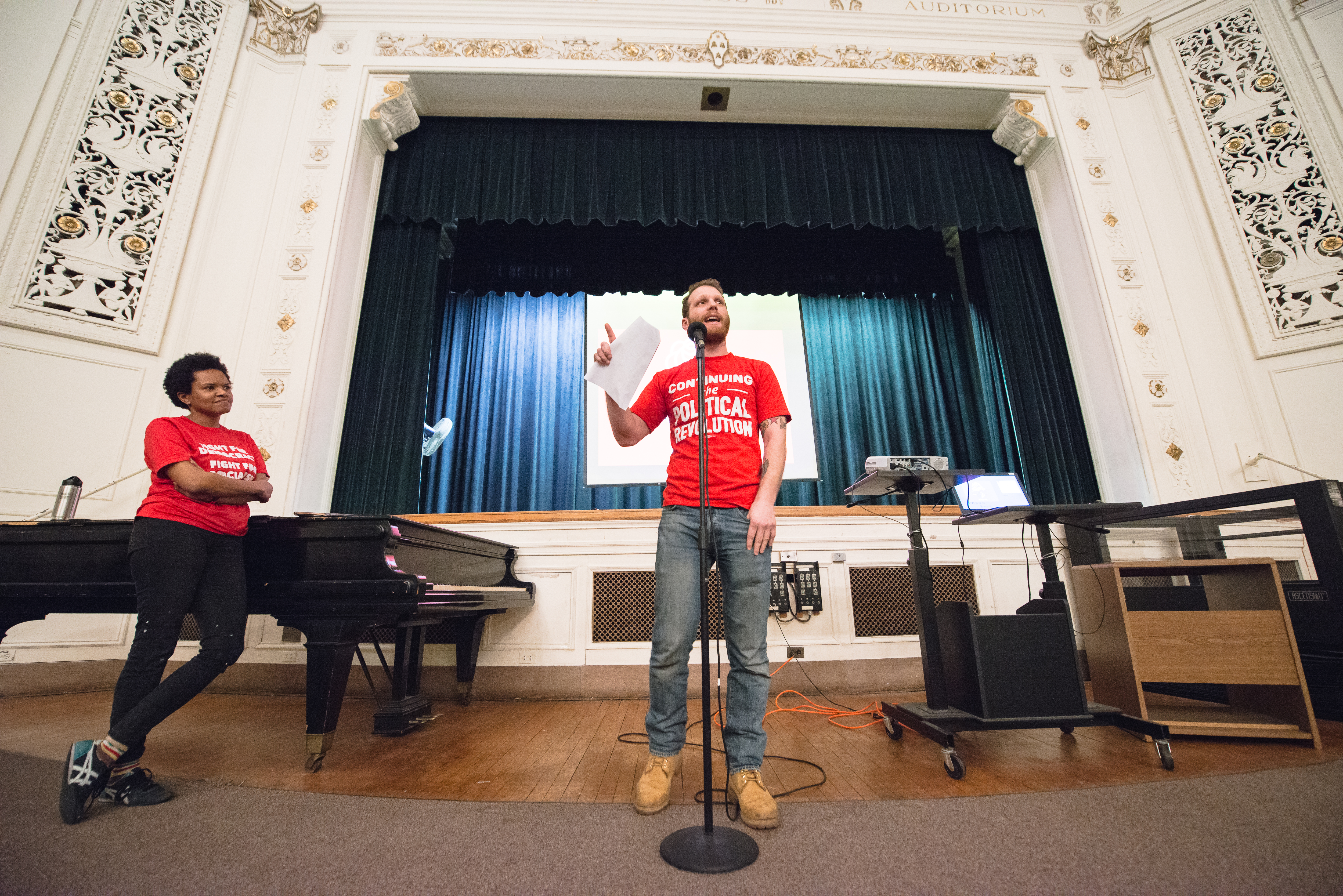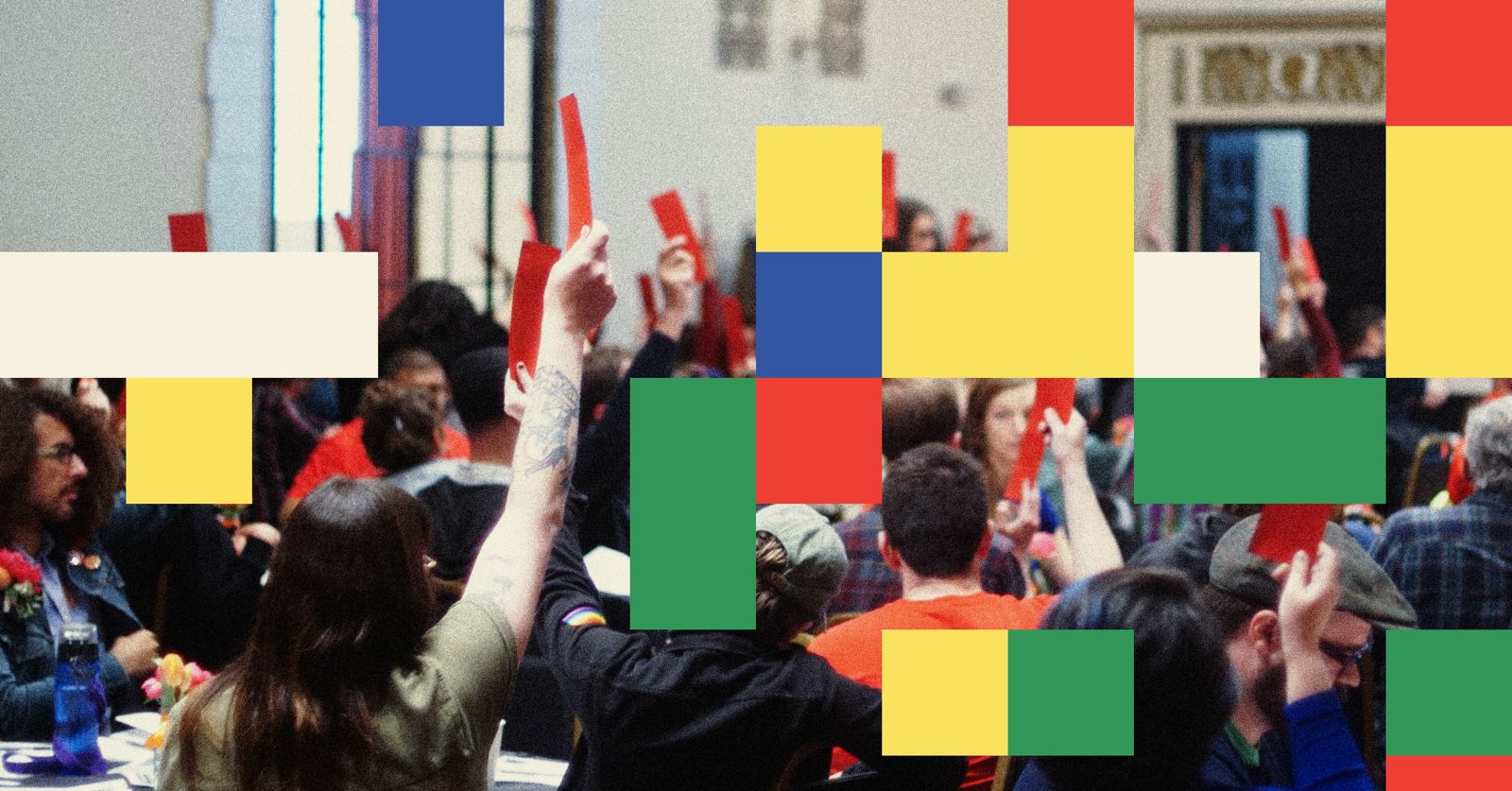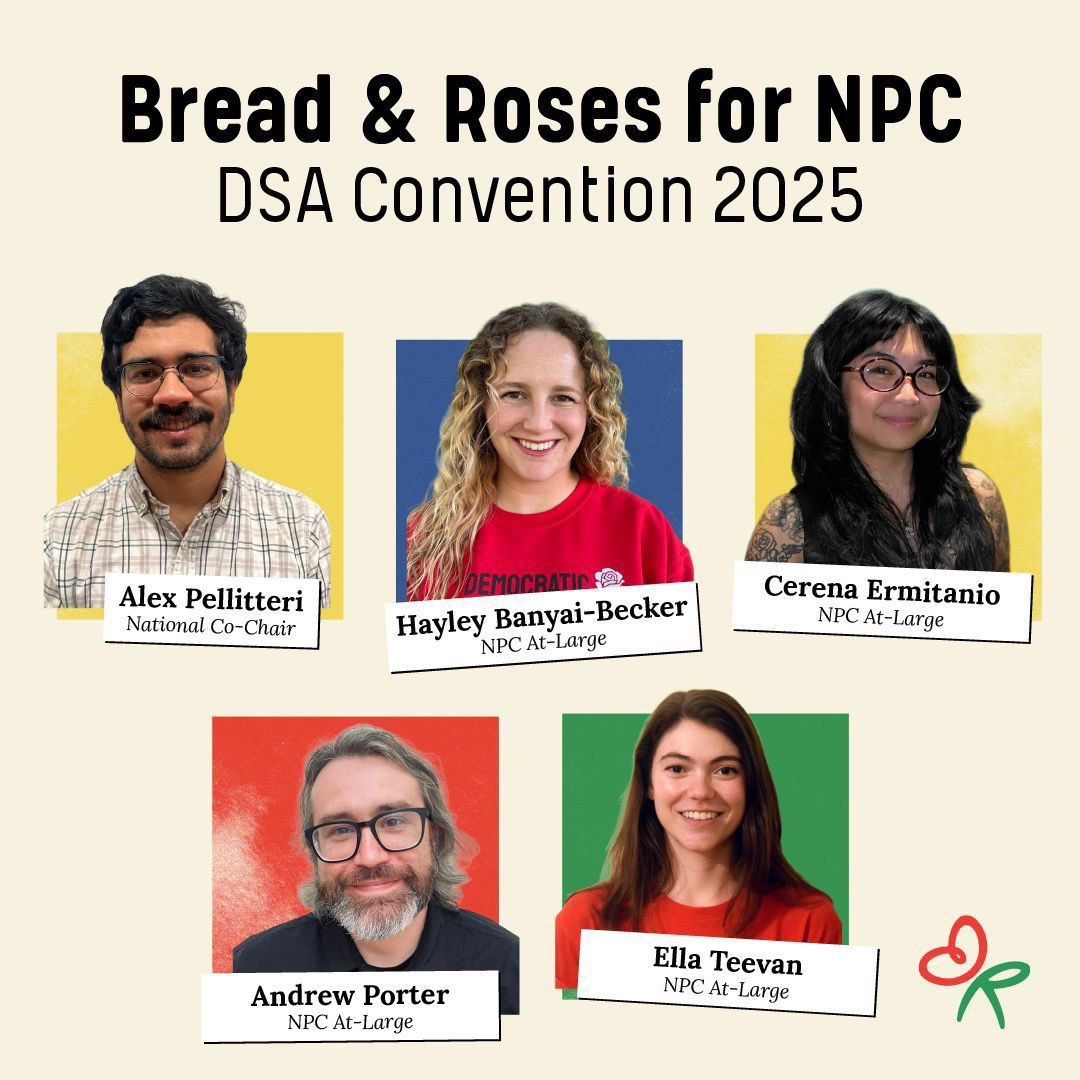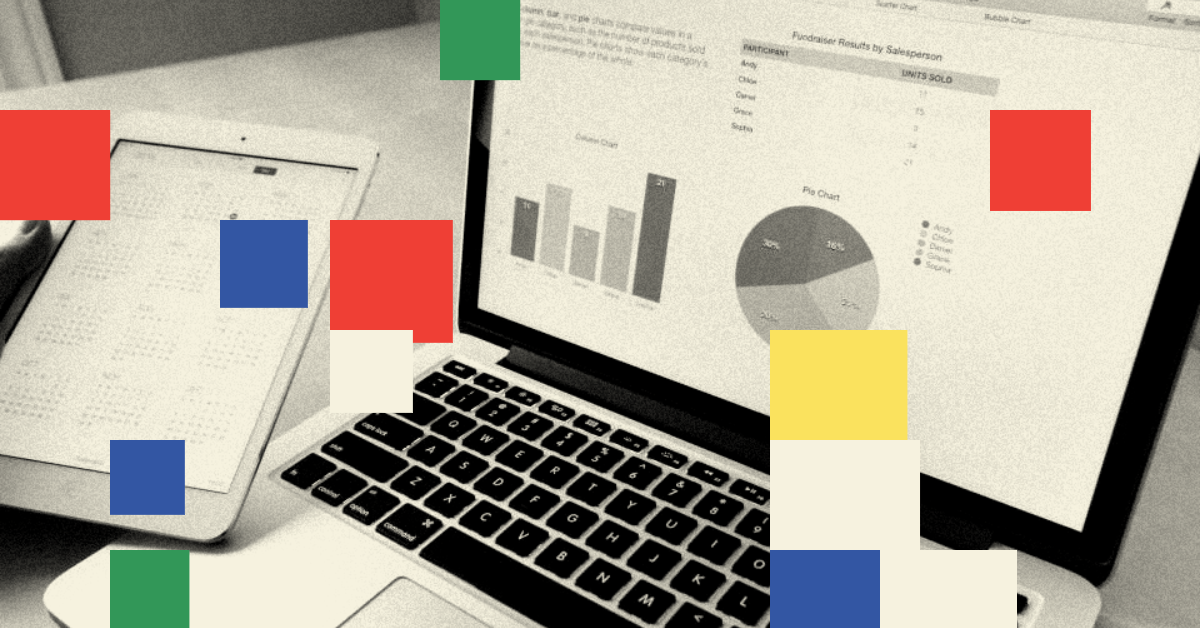DSA’s Bread & Roses caucus debated on Sunday, July 28, the various resolutions and constitution/bylaws changes being presented to the 2019 DSA National Convention in Atlanta this coming weekend.
While we decided to endorse a number of resolutions and constitution and bylaws changes, we were evenly divided on the question of whether or not to endorse Constitution/Bylaws Change #31 (Regionally Elected National Organizing Council (NOC)). In the end, we decided to take no position on whether or not DSA should create a NOC and asked two members who had opposing views on the question to write up their thoughts. Their contributions are published below.
Bread & Roses has also produced a longer review of the debates at the convention. Text of resolutions and constitution/bylaws changes — including CB31 — are updated and maintained by the national staff. Caucus positions on all the proposals are available here.
The Case FOR a National Organizing Council
by Matt Stone
One of the most pressing questions facing DSA’s 2019 National Convention is how to strengthen our internal organizational democracy. There are a host of proposals that address our national structure, ranging from the “Assembly of Locals” to Collective Power Network’s Regional Organizations plan. Within these options, I favor Constitution/Bylaws Change #31 (“Regionally Elected National Organizing Council”) by comrades from Socialist Majority Caucus, as it addresses the current challenges of our internal democracy in a thorough manner without creating overly bureaucratic or horizontal structures that would impede our political work.
In the following, I make the case that the proposed National Organizing Council (NOC) is both an important step for our organization to take in the next two years and that this broader body of national leadership would move us closer to building the framework necessary to launch a mass working-class party. In short, I support CB31 on the grounds that it addresses the organizational shortcomings of DSA’s current structure and sets us on a path to grow an effective and coherent national organization that primes us for the long-term project of party-building.
First, I want to highlight the two main shortcomings of DSA’s current national structure, which both stem from what CB31 calls the “gap in representation” between the 16-person National Political Committee and the thousands of active DSA members across the country. First, the distance between the national leadership and most locals means that many DSA members feel no meaningful connection to DSA as a national entity; many think of themselves as members of their local chapter but don’t follow national DSA debates closely or feel a strong investment in national projects and campaigns. Worse yet, the disconnect between the NPC and the activist layer of DSA occasionally creates discord around national projects, which risks hampering our ability to act collectively and effect political change at the national level.
These problems render DSA’s current organizational structure insufficient to our ambitious political goals and make the establishment of an intermediary layer of national leadership a crucial task for DSA in the next two years. CB31 addresses these problems through the creation of a National Organizing Council that would constitute the “highest policy-making body of the organization between meetings of the Convention.” It would be composed of the 16 NPC members and likely 50–70 other members elected as regional delegations. In short, it would expand our national leadership by a factor of four, creating a body that meets less frequently than the NPC but that has veto power over it.
The most important feature of the proposed NOC is that thousands more DSA members would have direct contact and relationships with national leaders on the organization’s highest elected body. NOC members would be conduits between national and locals, inviting a broader layer of DSA to follow national debates, participate in national projects and campaigns, and actually feel like a member of a national organization. The regional composition of the NOC also means locals across the country and smaller chapters would be more likely to have representation on a national body, and the NOC would provide an avenue for new cohorts of DSA activists to develop into national leaders. Moreover, because the NOC would be composed of leaders elected by the broader membership of DSA, it would bolster the legitimacy of our national political leadership.
Overall, the NOC would help us build a more coherent, democratic, and effective DSA. Such reforms should matter to any DSA member who wants to see our organization succeed. But as a member of the Bread & Roses caucus, I also see the project of building DSA as a step toward establishing an independent working-class party that I believe democratic socialists need to advance our program. As our caucus has outlined, we want to build “a mass working-class party that contests elections and builds movements,” but this project means much more than just creating a new ballot line. At its core, our idea of a party is a mass membership organization rooted in the multiracial working class, one that can intervene effectively in the state and the broader political sphere and lay the groundwork for a rupture with capitalism. In other words, we want a party that is the political vehicle of the class for itself.
The NOC is obviously not sufficient to this project, but it is a necessary short-term step. Without the creation of an intermediary layer of leadership in DSA, we will struggle to cohere the organization we already have into a truly national one, much less build toward the vision of a mass working-class party. On the question of party-building in the 21st century, Chris Maisano notes that “it is crucially important for political organizations to maintain intermediary structures between the top leadership and the base.” While some feel the project of electing and convening the NOC could divert our attention from outward-facing political campaigns, we must understand building this intermediary structure as the necessary work of party-building — that is, establishing the cohesion and deep organization that will allow us to exercise our strength as the working class. DSA’s internal democracy and external political work would both benefit enormously from an intermediary body like the NOC, and we should be ready and willing to invest our time and energy in such a project.
Whether one believes in the project of party-building or not, CB31 rightfully identifies a pressing challenge that currently faces DSA — namely, that our current national structure is too small to provide avenues for meaningful political debate and engagement across the organization. We need a larger body of national leadership to promote a culture of internal democracy and encourage broader participation in national debates and campaigns. Properly executed, the creation of the NOC could help our activists feel like true members of a national organization. As such, CB31 has the potential to cohere DSA and help us exercise our power as a political force on the national stage, and it will deepen our collective sense of solidarity and commitment to fight for socialism. I urge our 2019 Convention to pass CB31 and all DSA members to invest in the project of building the NOC in the coming two years, as we work together toward a more cohesive and democratic national organization.
The Case AGAINST a National Organizing Council
by James Cole
At the DSA convention, one of the chief responsibilities of delegates will be making decisions about the structure of the national organization and its leadership. One task will be discussing and making changes to address DSA’s very real political, structural, and organizational challenges.
Some of these challenges are the natural result of growth — at times the organization’s level of activity has gone far beyond the organization’s minuscule staff’s capacity to coordinate (or even to follow) this work. More concerning is the gap between DSA’s national leadership body, the National Political Committee (NPC), and the organization’s activist core (to say nothing of the tens of thousands of DSA members outside that activist core). It can be difficult for members to feel like they have a say in the decisions made by a 16-person body.
Not surprisingly, a number of constitution and bylaws changes have been proposed to reform the organization’s national leadership. Constitution/Bylaws Change #31 (CB31), a proposal drafted by several members of the Socialist Majority Caucus, comes closest to addressing these issues.
However, the proposal demands too many organizational resources at a time when our attention should be focused on major national campaigns and introduces too many unknowns and variables to be a solution that members ought to support.
In short, CB31 creates a new national leadership body, the National Organizing Committee (NOC), that takes on most of the responsibilities currently held by the NPC. This new body will meet at least twice a year. The NOC will be a body of roughly 70 people. Some of those people will be the members of the NPC. Others will represent yet-to-be-defined geographic regions, elected via online vote at some point after the 2019 DSA convention (and voted on in-person at subsequent DSA conventions). In addition to the current powers held by the NPC, the NOC would also have the power to change DSA’s constitution and bylaws by a two-thirds vote. The NPC would still maintain some of its responsibilities between meetings of the NOC, including the responsibility for making electoral endorsements.
Some of the problems with this proposal stem from the process to hold this initial election after the 2019 convention. The regions that would elect these delegates are yet to be defined and would be left to the incoming NPC to determine. The timeline for holding these elections is also undefined, as is the system to be used for counting ballots. Based on prior experience, we can assume that these will all be hotly contested decisions, likely to create new skirmishes of the sort that have already caused tension within the organization as a whole.
Moreover, the upcoming convention should serve as a natural stopping place for much of the internal politicking and debate that have taken up so much of DSA members’ attention in the past months. After the convention, DSA has the opportunity to shift its focus from internal matters to all of the political work we vote to undertake at the convention. Much of 2019 has seen DSA members consumed with NPC candidacies, political debates, and lengthy exchanges about structural minutia (of which this piece of writing is yet another installment). If passed, CB31 would immediately throw the national organization back into this mode. The newly elected NPC would find itself under immense pressure to get to work on implementing these new elections without delays; any decisions made by the NPC in the interim would be suspect; the specter of a new, larger body would make the existing body seem illegitimate by comparison. Many of DSA’s most dedicated organizers would find themselves jockeying for 50 or 60 seats on a new national body. The boundaries for our electoral regions (to be determined by the new NPC) would be drawn and redrawn and could become the site of factional dispute. Once elected, the new NOC would find itself having to work through rules and procedures and all the little decisions and debates that inevitably come with setting up parliamentary bodies.
Is this what we want our national leadership doing immediately after the election? The lack of specifics in this amendment about implementation and timeline will lead to an enormous amount of internal debate and administrative work at a key time for our organization. At the upcoming convention, we’re likely to vote to launch major campaigns around the Green New Deal, a mass campaign for voting rights, reproductive justice, and many others. Our organization is in the beginning stages of a mass campaign around Bernie Sanders’ presidential run. Our new NPC should focus on facilitating the political priorities we select at the convention. And this problem won’t be confined to the NPC. Already, far too many DSA members in chapter leadership spend the majority of their time up to their ears in administrative and parliamentary work. Creating a whole new layer of bureaucracy with a new mass of administrative responsibilities will only exacerbate this problem.
There are also some very serious problems with the specifics of the NOC and its powers. As it’s currently written, the proposed NOC would be able to change the bylaws and constitution of DSA as a national body. This is a dealbreaker: constitutions and bylaws should set limits on the power of our leadership bodies. The provision allowing the NOC to change the constitution and bylaws effectively makes the power of this body unlimited. Bread & Roses members have proposed an amendment that would remove this power from the proposed NOC; even supporters of CB31 should vote in favor of that amendment and ensure that the new NOC does not have the power to change the national constitution and bylaws.
Another serious issue with this proposal is the possibility of absenteeism undermining the legitimacy and democratic nature of this body. There is no quorum listed, and all-volunteer bodies of this size can often suffer from chronic absences and decreasing engagement stemming in part from the logistical difficulties of finding times and places for more than 50 working people to meet. It’s easy to imagine the NOC being unable to make arrangements that work for the majority of members, members gradually becoming disengaged from the NOC and increasingly smaller numbers of members involved in deliberation and decision making. If the NOC has 70 elected members but only 30 or 40 people attending meetings, will the membership of DSA see that body as legitimate? And what does the body do if people stop showing up? The proposal includes a process for filling vacancies of the NPC but not the NOC. Without a quorum or a process for filling vacancies, this proposal creates a body that could easily trend towards dysfunction or illegitimacy. Making such a body the most powerful decision-making body in DSA without testing such a body in practice invites disaster and leaves in place the problems the proposal was designed to solve.
Instead of passing new rules mandating such a body, DSA should use the tools already at its disposal to pilot a similar solution between now and the next convention. Article IX of our organization’s constitution includes provisions for a “National Advisory Committee” to consult with the NPC. Without making any bylaws changes, the incoming NPC could pilot a NOC-type body, hold lower-stakes regional elections, and convene the National Advisory Committee several times a year. The National Advisory Committee could be tasked with creating concrete proposals for an expanded, regionally elected body to be elected at the 2021 convention. Such a solution would spare the organization a chaotic and contentious online leadership election coming directly on the heels of the leadership election at the 2021 convention, while helping to lay the groundwork for a new middle layer of leadership.
This, of course, isn’t the only possible path towards an expansion and restructuring of the national organization. DSA members will have to weigh this proposal against several others at the convention. Of these proposals, CB31 is the best option, but it’s still not an option delegates should support. Convention delegates should vote no on CB31 — the proposal moves organizer time and attention away from critical external political work and creates a large body without making sufficient provisions for that body to succeed.




